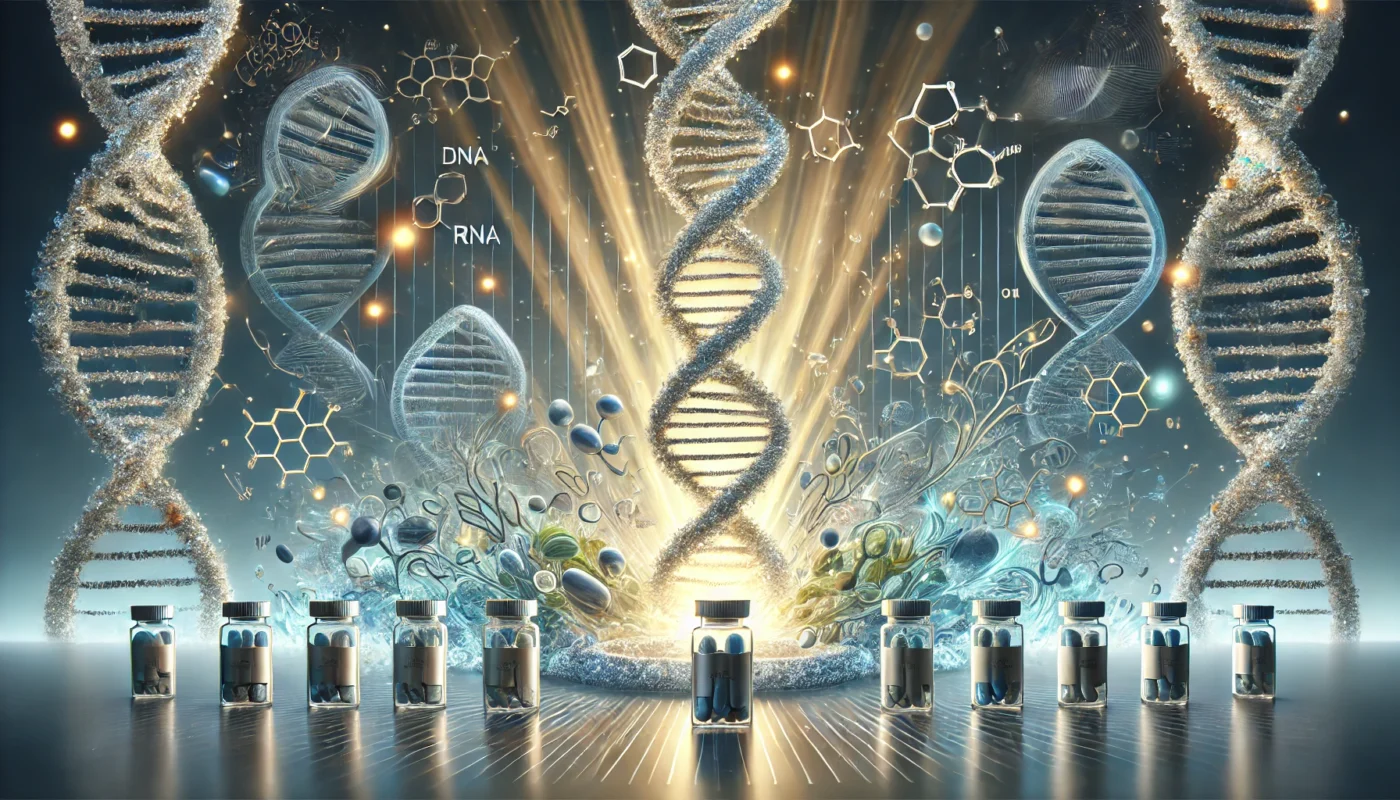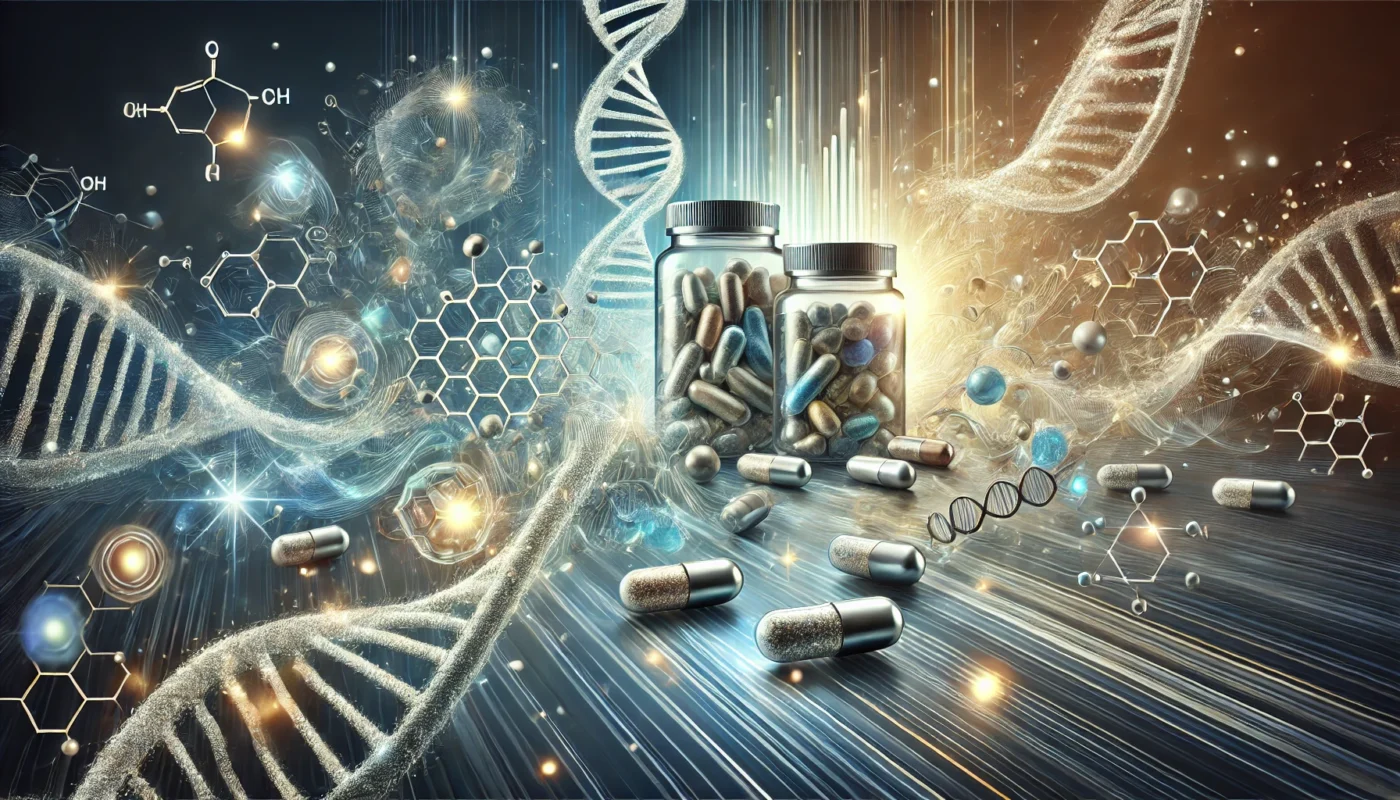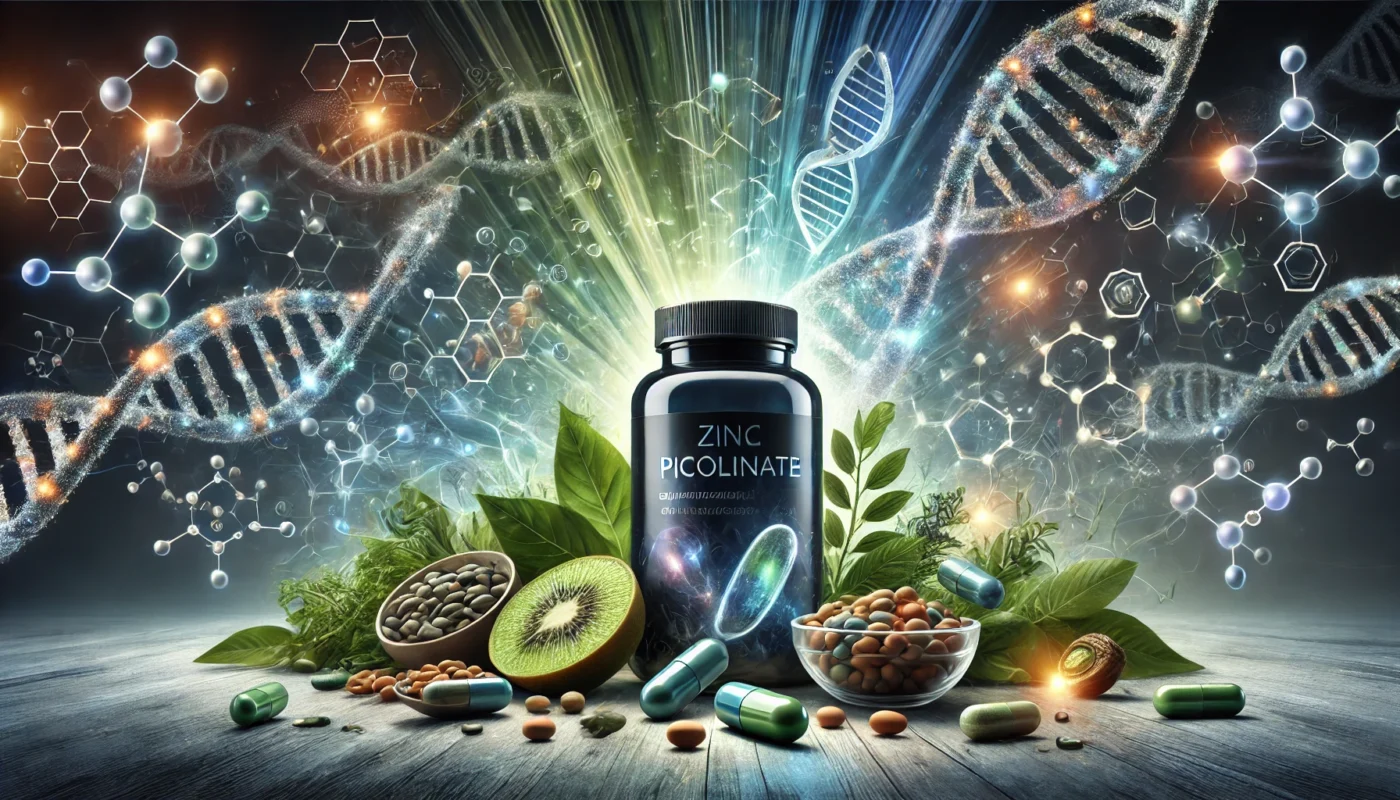Protein synthesis is a fundamental biological process responsible for muscle repair, growth, and overall tissue regeneration. For athletes, bodybuilders, and individuals recovering from injury, optimizing protein synthesis is crucial for achieving peak physical performance and recovery. Zinc, a vital trace mineral, plays a significant role in regulating this process, acting as a co-factor for numerous enzymes involved in cell growth and protein metabolism. Among zinc supplements, zinc picolinate stands out for its superior bioavailability, making it an effective choice for enhancing protein synthesis.
This article explores how zinc picolinate supports protein synthesis, aids muscle repair and growth, and improves recovery, backed by scientific studies and clinical evidence.
You May Also Like:
Zinc Picolinate and Chronic Fatigue: Can It Help Restore Energy?
Zinc Picolinate and Rheumatoid Arthritis: What We Know So Far
What Is Protein Synthesis?
Protein synthesis is the process by which cells generate new proteins from amino acids. These proteins serve as structural components (e.g., muscle fibers), enzymes, and signaling molecules essential for biological function. The process involves two primary stages:
- Transcription: DNA is transcribed into messenger RNA (mRNA), which carries genetic instructions for protein assembly.
- Translation: Ribosomes use mRNA to assemble amino acids into specific protein sequences.
In muscle tissue, protein synthesis is particularly important for repairing damage caused by exercise, promoting hypertrophy (muscle growth), and maintaining overall strength and functionality.
The Importance of Zinc in Protein Synthesis
Zinc is a critical element in protein synthesis due to its involvement in:
- Enzyme Activation: Zinc serves as a co-factor for over 300 enzymes, many of which are directly involved in protein metabolism and cell growth.
- Hormone Regulation: Zinc supports the production of hormones such as testosterone and growth hormone, which are key drivers of muscle growth and repair.
- Immune Function: By reducing inflammation and oxidative stress, zinc creates a favorable environment for efficient protein synthesis and tissue repair.
Zinc’s role in protein synthesis extends to cellular functions such as DNA replication and RNA transcription, which are essential for regenerating and maintaining muscle tissue.

What Is Zinc Picolinate?
Zinc picolinate is a chelated form of zinc, where zinc is bound to picolinic acid. This form enhances absorption in the gastrointestinal tract, making it one of the most bioavailable and effective zinc supplements available. For individuals seeking to optimize protein synthesis, particularly athletes and those with increased nutritional demands, zinc picolinate offers a reliable solution.
Zinc Deficiency: A Barrier to Protein Synthesis
Zinc deficiency is a widespread issue that can negatively impact protein synthesis and overall muscle health. According to the World Health Organization (WHO), up to 17% of the global population is at risk of inadequate zinc intake. Individuals most at risk include:
- Athletes: Increased zinc losses through sweat and urine can deplete levels.
- Vegetarians and Vegans: Plant-based diets often lack bioavailable zinc due to the presence of phytates, which inhibit absorption.
- Older Adults: Aging reduces zinc absorption efficiency, leading to deficiencies.
Impact of Zinc Deficiency on Protein Synthesis:
- Reduced enzyme activity involved in amino acid metabolism.
- Impaired hormone production (e.g., testosterone), limiting muscle growth potential.
- Slower recovery from muscle damage caused by exercise or injury.
Boost Cellular Repair and Aid Protein Synthesis with Zinc Picolinate—Buy Now on Amazon!

How Zinc Picolinate Enhances Protein Synthesis
Zinc picolinate supports protein synthesis through multiple mechanisms:
1. Promoting Anabolic Hormones
Zinc regulates hormones like testosterone, insulin-like growth factor-1 (IGF-1), and growth hormone, all of which play critical roles in muscle protein synthesis.
- Clinical Evidence: A study published in Neuro Endocrinology Letters found that zinc supplementation increased testosterone levels in men, enhancing anabolic processes and promoting muscle growth.
2. Activating Key Enzymes
Zinc is essential for the activation of enzymes involved in amino acid metabolism and protein assembly, such as RNA polymerases and aminoacyl-tRNA synthetases.
- Research Insight: A study in Biological Trace Element Research highlighted that zinc-deficient individuals showed impaired activity of these enzymes, leading to reduced rates of protein synthesis.
3. Supporting Post-Exercise Recovery
Intense exercise causes microtears in muscle fibers, which need to be repaired through protein synthesis. Zinc’s anti-inflammatory properties help reduce muscle soreness and accelerate tissue regeneration.
- Study Finding: Research in Journal of the International Society of Sports Nutrition demonstrated that zinc supplementation reduced muscle damage markers, enhancing recovery in athletes.
4. Enhancing Cellular Growth and Repair
Zinc supports cellular processes like DNA replication and RNA transcription, which are essential for generating new muscle cells and repairing damaged tissues.

Clinical Studies Supporting Zinc’s Role in Protein Synthesis
- Zinc and Muscle Growth (2011):
A study in Sports Medicine evaluated the effects of zinc supplementation on muscle strength and size in resistance-trained individuals. Participants receiving 25 mg of zinc picolinate daily for eight weeks showed significant improvements in muscle mass and protein synthesis rates. - Zinc and Hormonal Regulation (2014):
Research in Nutrients investigated the impact of zinc on testosterone and IGF-1 levels. Results indicated that zinc supplementation increased these anabolic hormones, directly enhancing protein synthesis and muscle repair. - Zinc and Recovery in Athletes (2019):
A clinical trial in Journal of Sports Science and Medicine found that zinc supplementation improved post-exercise recovery, reducing inflammation and promoting faster muscle repair.
Dietary Sources of Zinc
While zinc picolinate is an effective way to optimize zinc intake, dietary sources also contribute to overall zinc levels. Foods rich in zinc include:
- Animal-Based Sources: Oysters (highest natural source), beef, poultry, and eggs.
- Plant-Based Sources: Legumes (e.g., chickpeas, lentils), seeds (e.g., pumpkin seeds, sunflower seeds), and nuts (e.g., cashews, almonds).
For individuals with restricted diets or absorption challenges, zinc picolinate supplementation ensures consistent and adequate intake.
Boost Athletic Performance and Improve Protein Synthesis with Zinc Picolinate—Order Today on Amazon!

Recommended Dosage and Safety
The recommended dietary allowance (RDA) for zinc is:
- Adult men: 11 mg/day
- Adult women: 8 mg/day
For those seeking to optimize protein synthesis and muscle recovery, therapeutic doses of zinc picolinate often range from 20–40 mg/day. However, excessive zinc intake (above 40 mg/day) can lead to:
- Gastrointestinal discomfort
- Nausea
- Interference with copper absorption
Consult a healthcare provider before starting supplementation to determine the appropriate dosage for your needs.
Combining Zinc Picolinate with Other Nutrients for Muscle Growth
Zinc picolinate works synergistically with other nutrients to enhance protein synthesis and muscle recovery:
- Magnesium:
Magnesium supports muscle contraction and relaxation, complementing zinc’s role in recovery. - Vitamin D:
Vitamin D enhances muscle function and regulates calcium absorption, indirectly supporting protein synthesis. - BCAAs (Branched-Chain Amino Acids):
These amino acids provide the building blocks for protein synthesis, working alongside zinc to promote muscle growth. - Creatine:
Creatine improves energy availability for high-intensity exercise, enhancing the effectiveness of zinc’s anabolic benefits.
Future Research Directions
While current evidence supports zinc’s role in protein synthesis, future studies could explore:
- The long-term effects of zinc supplementation on muscle hypertrophy.
- Synergistic interactions between zinc and other micronutrients or supplements.
- The impact of zinc supplementation on muscle health in older adults and clinical populations.

Conclusion: Zinc Picolinate as a Muscle-Building Ally
Zinc picolinate offers a powerful, evidence-based solution for enhancing protein synthesis, supporting muscle repair, and promoting overall growth. By regulating anabolic hormones, activating key enzymes, and accelerating recovery, zinc picolinate addresses critical factors influencing physical performance and tissue regeneration.
For athletes, fitness enthusiasts, and individuals recovering from injury, incorporating zinc picolinate into a well-rounded nutrition plan can provide significant benefits for muscle health and recovery. As always, consult with a healthcare provider or sports nutritionist to tailor supplementation to your individual needs.

References
- Zinc in human health: effect of zinc on immune cells. Retrieved from: https://pubmed.ncbi.nlm.nih.gov/18385818/
- Zinc at the crossroads of exercise and proteostasis. Retrieved from: https://pmc.ncbi.nlm.nih.gov/articles/PMC7284914/
- Zinc status in athletes: relation to diet and exercise. Retrieved from: https://pubmed.ncbi.nlm.nih.gov/11475319/
- Associations between Zinc Deficiency and Metabolic Abnormalities in Patients with Chronic Liver Disease. Retrieved from: https://www.mdpi.com/2072-6643/10/1/88
- Effect of food sources of nitrate, polyphenols, L-arginine and L-citrulline on endurance exercise performance: a systematic review and meta-analysis of randomised controlled trials. Retrieve from: https://jissn.biomedcentral.com/articles
- Effects of zinc deficiency on protein synthesis and expression of specific mRNAs in rat liver. Retrieved from: https://pubmed.ncbi.nlm.nih.gov/7854157/
Important Note: The information contained in this article is for general informational purposes only, and should not be construed as health or medical advice, nor is it intended to diagnose, prevent, treat, or cure any disease or health condition. Before embarking on any diet, fitness regimen, or program of nutritional supplementation, it is advisable to consult your healthcare professional in order to determine its safety and probable efficacy in terms of your individual state of health.
Regarding Nutritional Supplements Or Other Non-Prescription Health Products: If any nutritional supplements or other non-prescription health products are mentioned in the foregoing article, any claims or statements made about them have not been evaluated by the U.S. Food and Drug Administration, and such nutritional supplements or other health products are not intended to diagnose, treat, cure, or prevent any disease.

